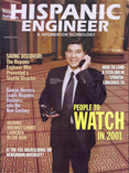By The U.S. District Court of Appeals in Washington, D.C., recently ruled against the Equal Employment Opportunity regulations of the Federal Communications Commission. The court found that the FCC regulations "put official pressure upon broadcasters to recruit minority candidates, thus creating a race-based classification that is narrowly tailored to support a compelling governmental interest and is therefore unconstitutional."
Some historical background is appropriate.
In 1969, the FCC determined that it would not serve the public interest to grant licenses to broadcasters that engaged in discriminatory practices. The Commission therefore prohibited licensees from discriminating in employment on the basis of race or sex and required them to establish EEO programs. In the words of former FCC Chairman William A. Kennard, "It is no mere coincidence that the adoption of the EEO rules in 1969 was followed by a steady and very substantial increase among broadcasters in the percentage of jobs held by minorities and women."
I know this to be true, because I was hired in 1971 by KNBC, the local NBC station in the Los Angeles area, in response to those rules. I was the only Latina among a small group of young women selected for entry-level positions in their Public Affairs and News Departments, which, at that time, were staffed mostly by White males. The men were not exactly welcoming: We had to put up with condescension and, in some cases, outright hostility. We learned the hard way how to prove ourselves, and, in the end, for those of us who prevailed, it was a great life lesson.
In the beginning, there were so few Hispanics in local TV and newspapers in Los Angeles that, even though we worked for competing outlets, we formed a group: The California Chicano News Media Association, where we found support. We got together socially, started a scholarship fund, and advocated for an increased presence in the local newsrooms and for better coverage of our communities.
By the 1980s, minority journalists were more visible, and organizations such as the National Association of Black Journalists, the National Association of Hispanic Journalists, the Asian American Journalists Association, and the Native American Journalists Association were raising their voices. And, motivated in part by the FCC rules, the media organizations sent recruiters to our conventions and hired journalists of color.
Even so, it has taken a long time for the newsrooms to begin to change. According to the Radio-Television News Directors Association's annual newsroom employment survey, Latinos made up only 4 percent of all news directors and newsroom employees working at local English-language television stations in 2000. Latinos at Spanish-speaking stations accounted for another 3 percent of TV newsroom employees. In radio newsrooms, Hispanics are only 3 percent of the personnel employed in the past year -- this at a time when Latinos are growing in numbers and in political and economic power.
Although many broadcasters have objected to the FCC rules, it is obvious that, if they are going to practice good journalism, they have to reflect the changing face of America. It is not clear yet whether the FCC, under its new chairman, Michael K. Powell, will draft a new set of rules or appeal the decision. The Minority Media and Telecommunications Council, one of the parties to the proceedings, has vowed to fight the court decision.
In the meantime, it is up to broadcasters to pursue diversity efforts voluntarily. They should, because it is the right thing to do. But perhaps they will because it makes business sense: in this era of dwindling audiences, they will be well advised to court a growing group of potential viewers.
And how should they do it? By hiring people who know how to report accurately on the diverse communities that are an integral and dynamic part of America now.
Cecilia Alvear is a field producer with NBC Network News in Burbank, Calif., and past president of the National Association of Hispanic Journalists (NAHJ). She is a Latina pioneer in television journalism.
HE & IT magazine June 2001

